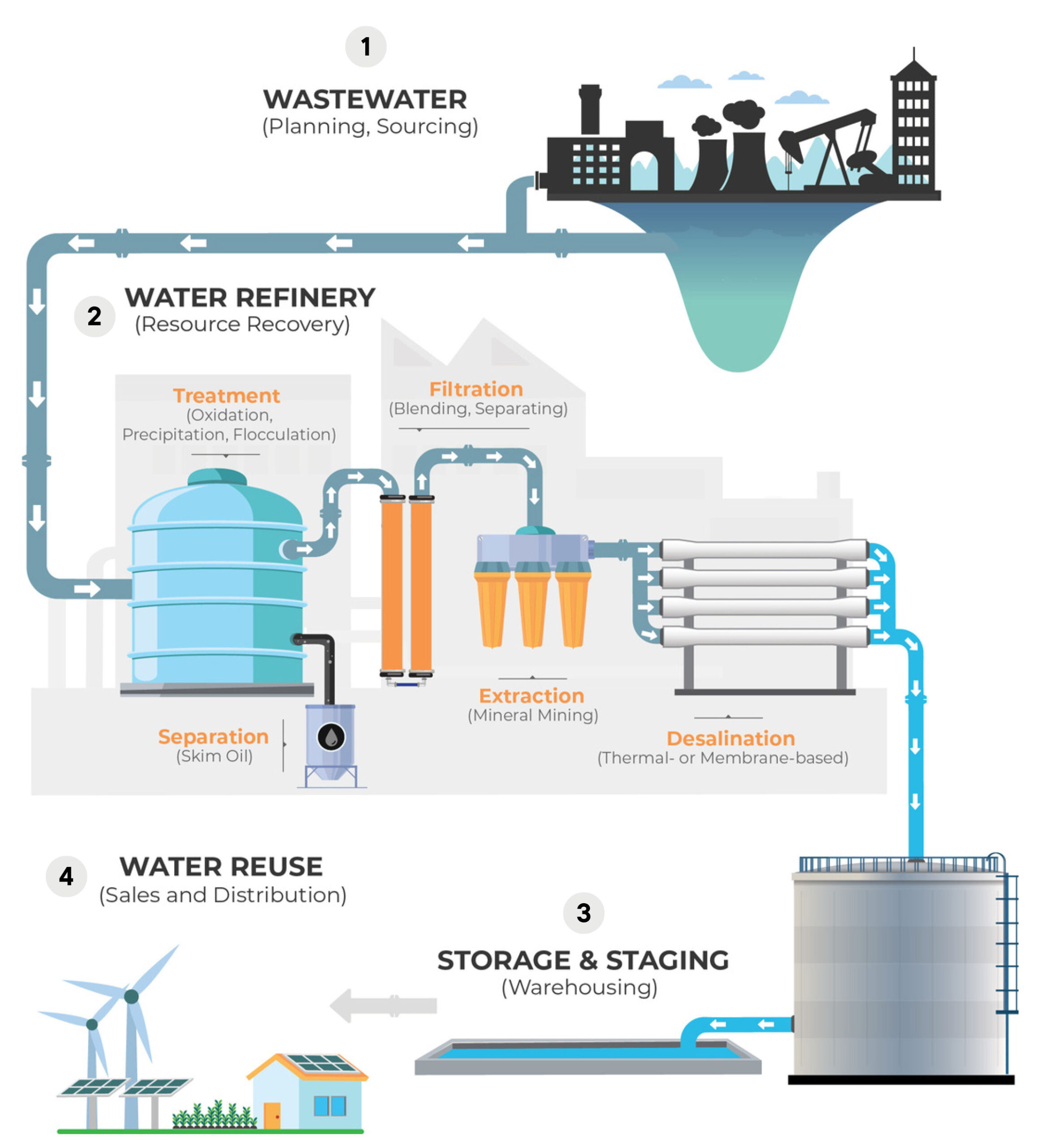In the United States, agriculture is the largest consumer of freshwater and a significant producer of wastewater. With billions of gallons of freshwater being used per day in the United States, and over a trillion gallons of wastewater accumulating in large agricultural states, there's no mistaking the critical role of water management in the industry.
In regions like Texas and New Mexico, where agricultural water use is high and water scarcity is a frequent issue, cost savings of a closed-loop water recycle system is particularly impactful. Farmers can potentially save large sums annually, which enhances the economic sustainability of their operations while also contributing to environmental conservation efforts.
Power generation requires substantial quantities of water for cooling, boiler feed water, and other process needs, generating millions of gallons of wastewater per day. In the US, power generation accounts for ~48.5 trillion gallons of freshwater withdrawals annually. In water-scare regions like Texas and New Mexico, adopting closed-loop water reuse systems could save millions of gallons of freshwater daily, contributing to both economic and environmental sustainability.
Municipalities use millions of gallons of freshwater per day for residential and commercial sectors. Closed-loop systems in municipalities not only promote water conservation, but also enhance the resilience of water supply systems, making them less vulnerable to droughts and reducing the costs associated with water purification and distribution. This approach is especially critical in regions facing frequent water shortages and stringent environmental regulations, like the American Southwest.
Freshwater is crucial for cooling systems, process water, and cleaning operations in manufacturing plants, with withdrawals exceeding millions of gallons per day in water-intensive sectors like chemicals, metal fabrication, and paper manufacturing. These processes generate an incredible amount of wastewater daily. A closed-loop water reuse system would reduce freshwater intake and minimize waste, contributing to substantial cost reductions, and potentially saving millions of dollars annually. This would reduce the ecological footprint of manufacturing activities in water scarce regions like Texas and New Mexico and enhance the sustainability of operations.
Mining operations, particularly those involving leachate processes for metal extraction like gold and copper, require significant amounts of water (500,000 to several million gallons of water per day depending on the size and type of operation). The generation of leachate and other mining effluents can have severe impacts on local water bodies and can contaminate groundwater and surface water. A closed-loop water reuse system in mining operations can effectively reduce freshwater use, minimize environmental impacts, ensure compliance with regulatory standards, and improve efficiencies, resulting in substantial cost savings.

